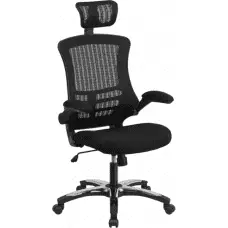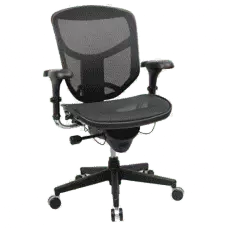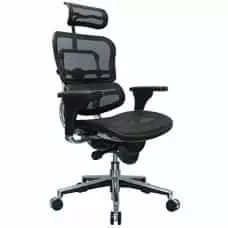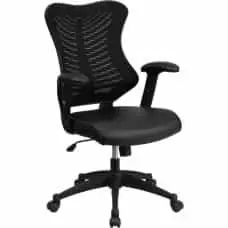Can you give a quick overview of what you do professionally and why you do it? What do you find most meaningful about your work?
Keith: For the past roughly 15 years, I’ve worked in progressive aspects of the technology field, supporting internal operations for private companies, until eventually transitioning to an exclusive consulting role. Evolving in my career, I have been able to focus on the strategic and impactful characteristics technology can have on a business, while creating excitement within client organizations on the adoption of new solutions and processes! I have a native passion for helping people, combined with an incessant fascination with technology; a fantastic recipe for leading transformative business technology endeavors.
How important do you believe company culture is to an organization’s success?
Keith: Without a solid culture, you can only flirt with success. With an engaged, excited and passionate team, you can capture any business opportunity and rise over any challenge. I’ve worked for companies who urged personal development, career progression, diversity in responsibility, all of which played a major role in fueling my passion and engagement. When you’re enthusiastic about what you do, your brain almost effortlessly works to find new measures of success in your position and career.
Without naming the companies, can you give examples of good cultures you have worked in and bad cultures you have worked in and how they have led to positive and negative results respectively?
Keith: I worked for companies who stressed accounting for seemingly every minute of the day, engrossed on burning a dollar to find a penny. For most of the staff, such an attitude extinguished the “why” for coming to work each day. When the “why” is permanently lost, so is the employee.
What is the company that you have worked for or with that you believe has the best culture and why?
Keith: K3 Technology, and I don’t say that merely because I work there. There is a genuine focus on transforming the stereotypical, dull, IT consulting model, which includes a true dedication towards building an outstanding team. The K3 hiring process is unique, the manner in which workflows and company growth are unique. Almost every facet of the company’s underworking is unique, and it’s thrilling to be part of a true disrupting force. At the core of the business is genuinely…client experience!
What can other companies do to emulate their success?
Keith: We spend endless amounts of time examining how our processes, staff, partners, marketing, and overall presentation combine to create a memorable client experience. Amazingly, through these brainstorming sessions, it feels like we’re discovering and not creating. My advice for other companies would be to take your eyes off the road of revenue and look to the horizon of client experience. The sustained growth and culture you’ll be able to create will be incomparable.
What is the company that you have never worked for or with but believe has the best culture? What are about that company’s culture do you admire from afar?
Keith: Apple as a company is one to admire. Down to the manner in which accessory cables are wrapped and presented in a refined way confirms Apple’s passion for client experience and loyalty. Likewise, I appreciated Steve Jobs belief that good enough was not good enough if it could, in fact, be done better. And for that, you need a superior talent pool.
Describe your office environment and how it relates to your company culture. Give us a feel for your office design, from the office furniture design to the intangibles.
Keith: We work in a modern, airy, bright and uplifting space. From stand up desks to high-quality functional chairs, comfortable couch areas and collaborative conference rooms, it is an environment primed for an energized team culture. Simply a change of scenery by sitting in a different area fosters energy and creativity in the office.
What do you believe are the key elements to creating and maintaining an uplifting office environment?
Keith: We all have trying days. By creating an uplifting and motivating place to work, and of equal value, and inspiring cause to work towards, you have an exponentially better chance of lifting your mind.
What does ergonomics mean to you? How has your knowledge of ergonomics impacted your work?
Keith: Looking out for your body is hugely impactful to maintaining a positive life. Proper ergonomics, just like proper form when lifting weights or exercising, helps offset the impact we’re continually placing on our body being in an office environment for long periods of time.
How do you buy office furniture? Do you buy furniture online? When do you decide to buy?
Keith: Rooted in the company culture is not doing things just for the sake of doing them. When it comes to furniture purchases or any other business purchase, we establish our need, determine which product(s) may accomplish the need, and then we source either online or in-store. From time to time, there are so many options online that don’t quite fit, yet in our spare time, we may walk past a store and see what we need right there. The key is not to force a purchase.
What office chair do you sit in and why? What specific features about your office chair do you appreciate and enjoy? And how would you weigh the relative importance of comfort, posture support, design, cost, and other variables?
Keith: I sit in a high back task chair. It provides great support for sitting for a long period of time, glides nicely, and being a quality product, doesn’t squeak as I rock back and forth. I’m all about white noise in the office, but I feel a sound masking machine is a wiser investment over a chattery chair.
What is your best advice on maximizing productivity in the office?
Keith: Find amazing people. Do not settle. The results immeasurably outweigh the challenge in finding such individuals.
What is your best advice on effectively managing others?
Keith: Again, when you have an engaged and passionate team, managing is more of a guiding opportunity versus a taskmaster responsibility. When you build a team that can understand a described vision or challenge and know-how they can play a part in addressing it, you can make extraordinary strides.
What workplace trends do you see on the horizon? Leave us with three things we should be on the lookout for.
Keith: As remote working becomes more widely adopted, I see companies getting more creative in bringing their teams together in a non-traditional fashion. I believe by using virtual reality we can collaborate in ways that only seem like science fiction. I also see an increased focus on creating inviting and visually appealing workspaces, as opposed to spaces that “get the job done.” Humans are visual creatures, our workspaces should acknowledge such.









